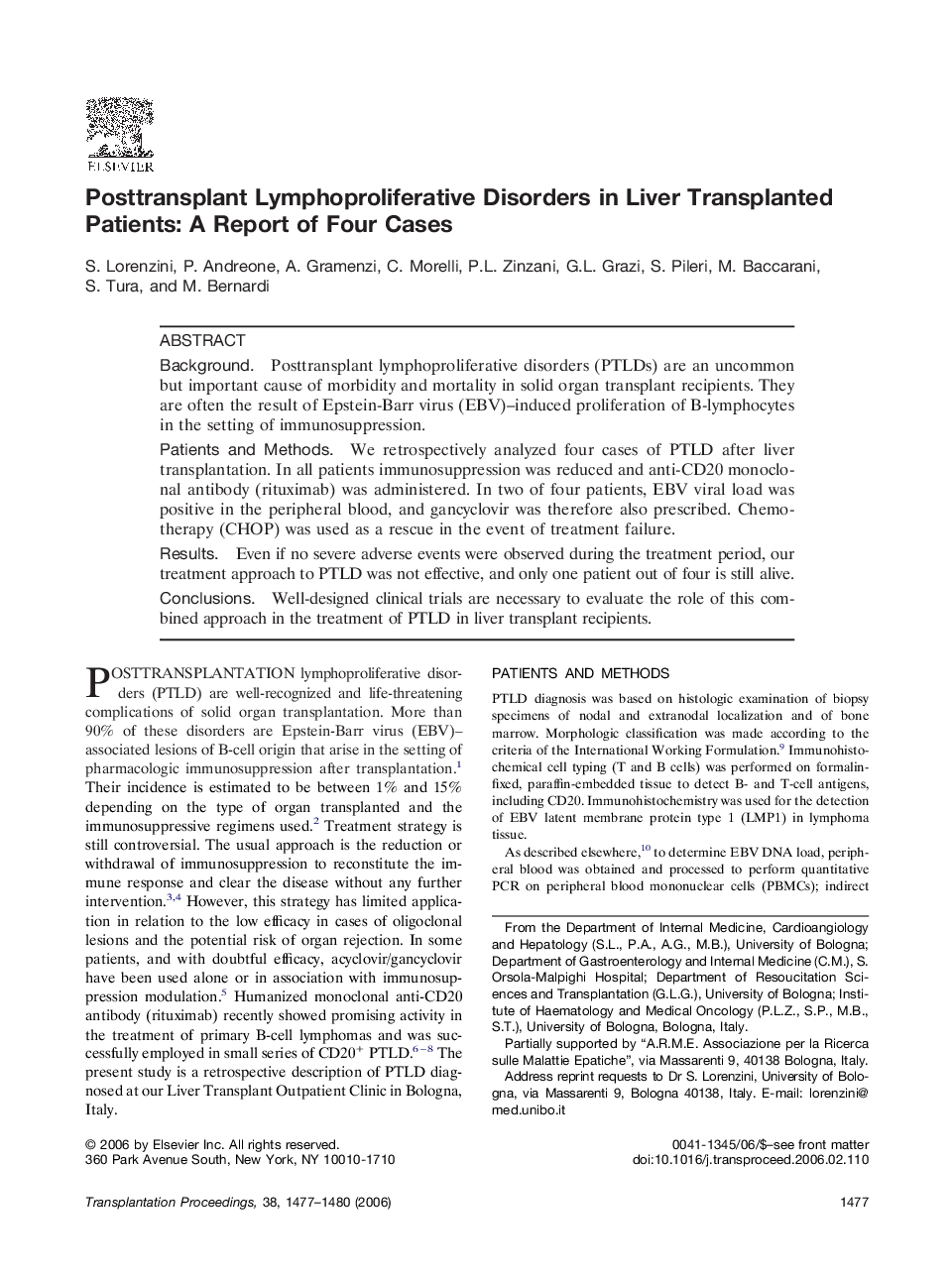| Article ID | Journal | Published Year | Pages | File Type |
|---|---|---|---|---|
| 4263471 | Transplantation Proceedings | 2006 | 4 Pages |
BackgroundPosttransplant lymphoproliferative disorders (PTLDs) are an uncommon but important cause of morbidity and mortality in solid organ transplant recipients. They are often the result of Epstein-Barr virus (EBV)–induced proliferation of B-lymphocytes in the setting of immunosuppression.Patients and MethodsWe retrospectively analyzed four cases of PTLD after liver transplantation. In all patients immunosuppression was reduced and anti-CD20 monoclonal antibody (rituximab) was administered. In two of four patients, EBV viral load was positive in the peripheral blood, and gancyclovir was therefore also prescribed. Chemotherapy (CHOP) was used as a rescue in the event of treatment failure.ResultsEven if no severe adverse events were observed during the treatment period, our treatment approach to PTLD was not effective, and only one patient out of four is still alive.ConclusionsWell-designed clinical trials are necessary to evaluate the role of this combined approach in the treatment of PTLD in liver transplant recipients.
